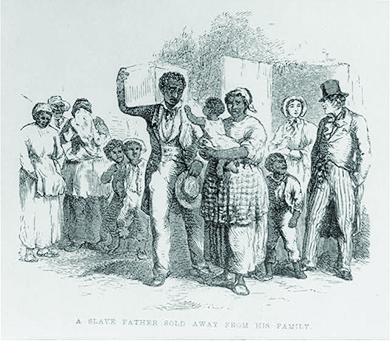| << Chapter < Page | Chapter >> Page > |
The effort to remake the South generated a brutal reaction among southern whites, who were committed to keeping blacks in a subservient position. To prevent blacks from gaining economic ground and to maintain cheap labor for the agricultural economy, an exploitative system of sharecropping spread throughout the South. Domestic terror organizations, most notably the Ku Klux Klan, employed various methods (arson, whipping, murder) to keep freed people from voting and achieving political, social, or economic equality with whites.
The degraded status of black men and women had placed them outside the limits of what antebellum southern whites considered appropriate gender roles and familial hierarchies. Slave marriages did not enjoy legal recognition. Enslaved men were humiliated and deprived of authority and of the ability to protect enslaved women, who were frequently exposed to the brutality and sexual domination of white masters and vigilantes alike. Slave parents could not protect their children, who could be bought, sold, put to work, brutally disciplined, and abused without their consent; parents, too, could be sold away from their children ( [link] ). Moreover, the division of labor idealized in white southern society, in which men worked the land and women performed the role of domestic caretaker, was null and void where slaves were concerned. Both slave men and women were made to perform hard labor in the fields.

In the Reconstruction era, African Americans embraced the right to enjoy the family bonds and the expression of gender norms they had been systematically denied. Many thousands of freed black men who had been separated from their families as slaves took to the road to find their long-lost spouses and children and renew their bonds. In one instance, a journalist reported having interviewed a freed slave who traveled over six hundred miles on foot in search of the family that was taken from him while in bondage. Couples that had been spared separation quickly set out to legalize their marriages, often by way of the Freedmen’s Bureau, now that this option was available. Those who had no families would sometimes relocate to southern towns and cities, so as to be part of the larger black community where churches and other mutual aid societies offered help and camaraderie.
Most freed people stayed in the South on the lands where their families and loved ones had worked for generations as slaves. They hungered to own and farm their own lands instead of the lands of white plantation owners. In one case, former slaves on the Sea Islands off the coast of South Carolina initially had hopes of owning the land they had worked for many decades after General Sherman directed that freed people be granted title to plots of forty acres.

Notification Switch
Would you like to follow the 'U.s. history' conversation and receive update notifications?